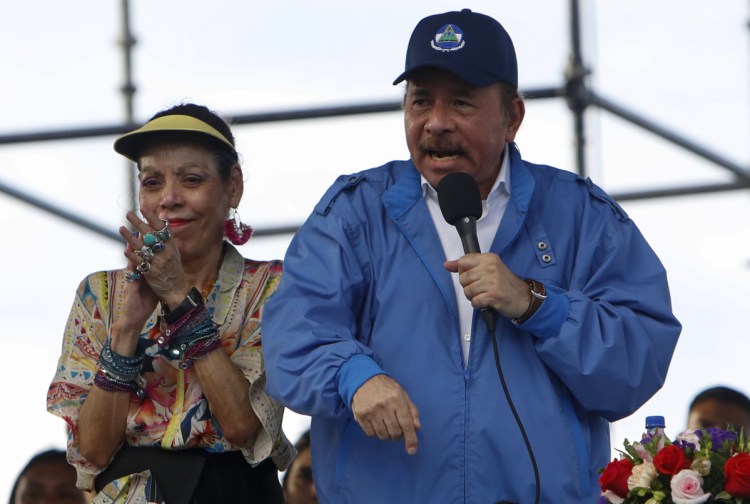MANAGUA, Nicaragua — The government of Nicaraguan President Daniel Ortega is expelling a United Nations human rights team two days after the body published a critical report blaming it for the violent repression of opposition protests.
A U.N. human rights official who was not authorized to speak publicly about the situation said Friday the team was told to leave the country. An official statement was expected later.
The U.N. Security Council will discuss the situation in Nicaragua on Sept. 5, the official said.
The report released Wednesday by the Office of the U.N. High Commissioner for Human Rights described repression that stretched from the streets to courtrooms, where some protesters face terrorism charges.
More than 300 people have been killed since popular protests began in mid-April triggered by cuts to the country’s social security system. Ortega reversed the cuts, but demonstrations quickly expanded and turned into a call for him to step down.
In July, the government forcefully cleared the last of the roadblocks erected by protesters that had snarled the country’s traffic. It also retook the last of the university campuses occupied by students.
The U.N. report called on the government to immediately halt the persecution of protesters and disarm the masked civilians who have been responsible for many of the killings and arbitrary detentions. It also documented cases of torture and excessive force through interviews with victims and local human rights groups.
In response, the government said that the report was biased and did not consider that its actions occurred in the context of what it alleges was a failed coup attempt. It said the report ignored the violence afflicted against members of his Sandinista party.
Ortega has called the protesters “terrorists” working in coordination with domestic and foreign interests which want him removed from office.
The government also accused the U.N. team of overstepping its authority in violation of Nicaragua’s sovereignty and said the U.N. had not been invited to evaluate the human rights situation, but to accompany a commission working to end the crisis.
A national dialogue aimed at finding a resolution ultimately stalled, and Ortega accused the Roman Catholic bishops who were mediating the talks of working with coup mongers.
Copy the Story Link
Send questions/comments to the editors.



Success. Please wait for the page to reload. If the page does not reload within 5 seconds, please refresh the page.
Enter your email and password to access comments.
Hi, to comment on stories you must . This profile is in addition to your subscription and website login.
Already have a commenting profile? .
Invalid username/password.
Please check your email to confirm and complete your registration.
Only subscribers are eligible to post comments. Please subscribe or login first for digital access. Here’s why.
Use the form below to reset your password. When you've submitted your account email, we will send an email with a reset code.